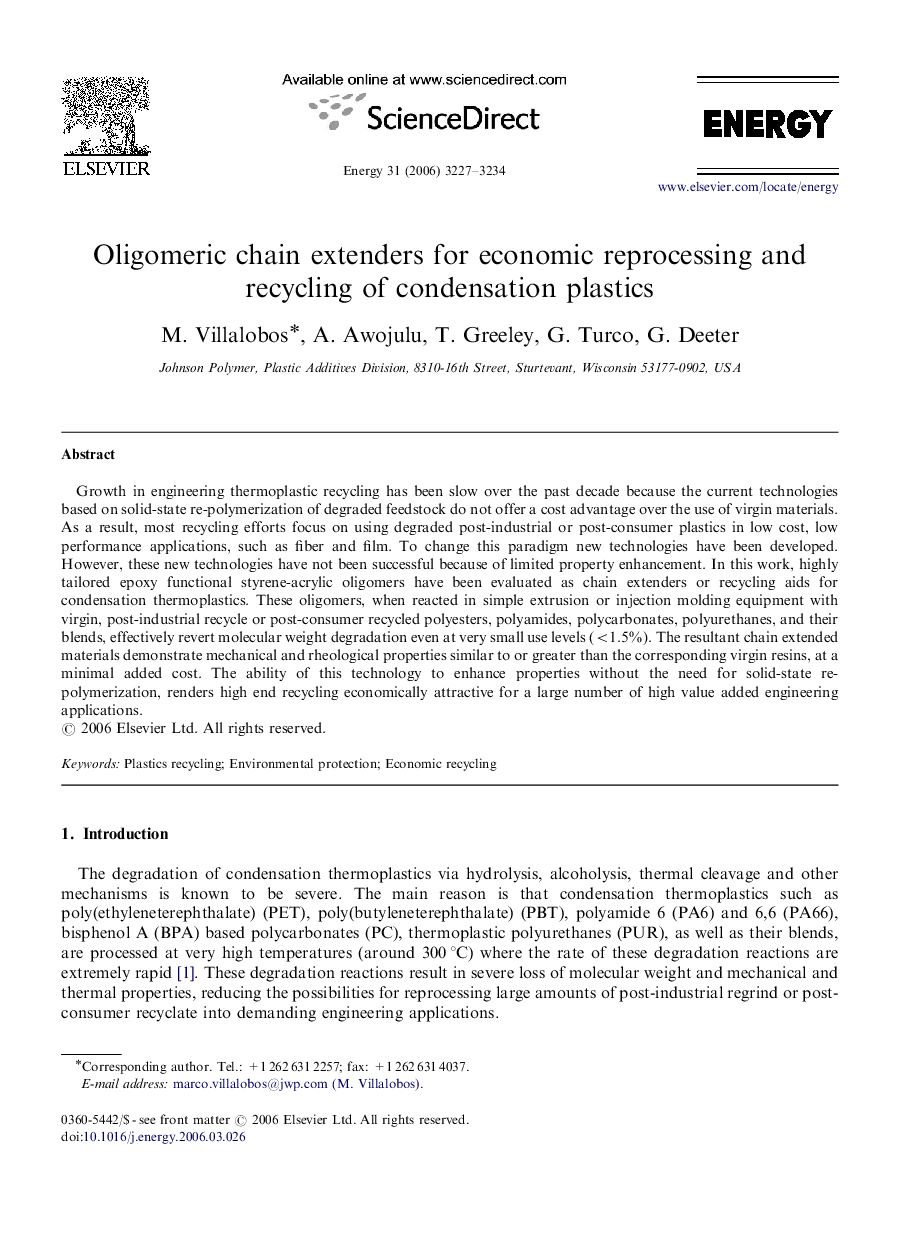| Article ID | Journal | Published Year | Pages | File Type |
|---|---|---|---|---|
| 1736097 | Energy | 2006 | 8 Pages |
Growth in engineering thermoplastic recycling has been slow over the past decade because the current technologies based on solid-state re-polymerization of degraded feedstock do not offer a cost advantage over the use of virgin materials. As a result, most recycling efforts focus on using degraded post-industrial or post-consumer plastics in low cost, low performance applications, such as fiber and film. To change this paradigm new technologies have been developed. However, these new technologies have not been successful because of limited property enhancement. In this work, highly tailored epoxy functional styrene-acrylic oligomers have been evaluated as chain extenders or recycling aids for condensation thermoplastics. These oligomers, when reacted in simple extrusion or injection molding equipment with virgin, post-industrial recycle or post-consumer recycled polyesters, polyamides, polycarbonates, polyurethanes, and their blends, effectively revert molecular weight degradation even at very small use levels (<1.5%). The resultant chain extended materials demonstrate mechanical and rheological properties similar to or greater than the corresponding virgin resins, at a minimal added cost. The ability of this technology to enhance properties without the need for solid-state re-polymerization, renders high end recycling economically attractive for a large number of high value added engineering applications.
